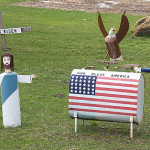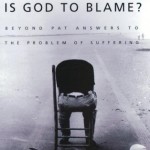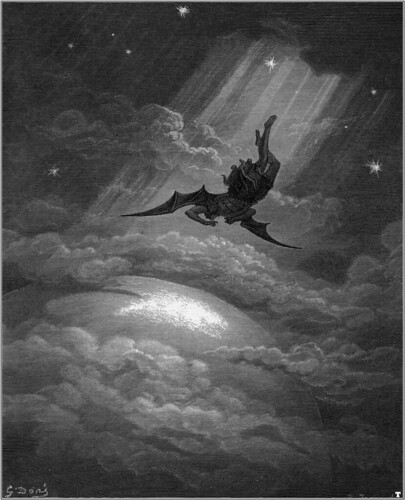We run our website the way we wished the whole internet worked: we provide high quality original content with no ads. We are funded solely by your direct support. Please consider supporting this project.
Our Beautiful, Nightmarish World
The Bible consistently proclaims that the creation reflects the glory of God. To me, the truth of this proclamation is undeniable. When I was younger I several times went on three-week solo backpacking trips into the mountainous forests of Montana. If gazing at the star studded sky on a moonless night at the peak of an 11,000 foot Montana mountain wouldn’t convince a person there’s a mind-bogglingly magnificent God behind this creation, I don’t know what would.
But the Bible and universal human experience also teach us that this “glory” isn’t the whole story.
That same God-glorifying starry sky looks down with indifference on terrified children sold into sexual slavery, war-torn countries, the ravages of disease, the aftermath of unimaginable natural disasters, and a planet that has known the incalculable suffering of events such the Holocaust and the genocide of Rwanda.
How can there be such a beautiful, nightmarish world? The biblical answer is that the world was created and is ultimately sustained by a beautiful God. But it has been seized and is now largely run by nightmarishly evil Powers.
A lot of people today, including a lot of Christians, find it hard to believe in things like Satan, rebellious angels and evil demons. And even some of those who say they believe in them feel awkward talking about them.
I empathize with this skepticism. Part of the reason for it, I suspect, is that we tend to think of Satan and demons as cartoon-like red entities with horns, hooves and pitchforks. These images are indeed mythic, borrowed mostly from pagan religions.
Nevertheless, while these images are mythic, there’s no reason to think that the evil realm they represent is mythic. The whole of the biblical narrative presupposes it’s real. Every aspect of Jesus’ ministry presupposes it’s real. Almost all people in all cultures throughout history have assumed this realm was real and often experienced it as real. And, in fact, there is a growing wealth of testimony from contemporary people, including a host of otherwise secular western anthropologists, that the supernatural realm is real, and that some of it is hostile.
I honestly don’t see how it is possible to explain how an all-good God could create a cosmos that is this screwed up without accepting that he’s opposed by forces of evil that operate on a cosmic scale. Appealing to human free will alone simply doesn’t cut it.
The world we live in looks like a war zone because the world we live in is a war zone. There is much that magnificently glorifies God, but there is also much that nightmarishly glorifies evil. An evil adversary and a rebel kingdom have seized the good creation. This adversary holds the earth and the humans who were supposed to rule it in bondage. Jesus came to change all this.
Jesus came to defeat the devil and end all his works (1 Jn 3:8; Heb 2:14). Through his life, ministry, death and resurrection he dealt a fatal blow to the powerful leader of the rebel regime and established a subversive revolution that he promised would ultimately end the enemy occupation and liberate the earth.
This is what Christianity is supposed to be. It’s not an orthodox club of people who believe all the right things. It’s not a holy club of people who always do all the right things. What Jesus rather came to establish was a movement of people who individually and collectively manifest the domain in which God is King and who revolt against every aspect of the domain in which Satan is king.
Category: Essays
Tags: Beauty, Essay, Evil, Kingdom, Kingdom Living, Satan, Warfare Worldview
Topics: Spiritual Warfare, Cosmic Conflict
Related Reading

The Danger of the Penal Substitution View of Atonement
About 25 years ago I was traveling on the freeway to somewhere or other and I stopped at a truck stop to get a bite to eat. I sat down at the counter next to this scruffy truck driver who had just started his lunch, and we started up a friendly conversation. Within about fifteen…

5 Differences Between The Kingdom of God and the Kingdom of the World
Image by matthijs rouw via Flickr The kingdom of God looks and acts like Jesus Christ, like Calvary, like God’s eternal, triune love. It consists of people graciously embracing others and sacrificing themselves in service to others. It consists of people trusting and employing “power under” rather than “power over,” even when they, like Jesus, suffer because…

God and Our Political Platforms
Rachel Held Evans posted a blog today on the stir created when Democrats booed the passing of “an amendment to the party platform reinstating language that identified Jerusalem as the rightful capital of Israel and that referred to people’s “God-given potential” in its preamble.” Of course this fed into the belief that if you’re a…

Did God Cause the Polar Vortex?
When is this polar vortex thing going to end? It’s March, and even in Minnesota we expect to see temperatures warmer than this. With all of the sleet and cold in the south, it seems like schools are closing more than they are open. While this is not a catastrophic event like a hurricane, tsunami,…

Quotes to Chew On: Prayer and Finitude
“We pray as we live: in a sea of ambiguity. This is not because we are fallen but because we are finite. And we are inclined to forget we are finite. We ignore the ambiguity that accompanies our finitude, and thus we claim to know what we can’t know. We reduce the unfathomable complexity of…

Is Hell Eternal Punishment?
The end of time, according to the Bible, is marked by hope, the hope that God’s will shall someday be done “on earth as it is in heaven.” The hope is that however terrible our present circumstances may be, before long they will all come to an end. Then creation will be what God always…

